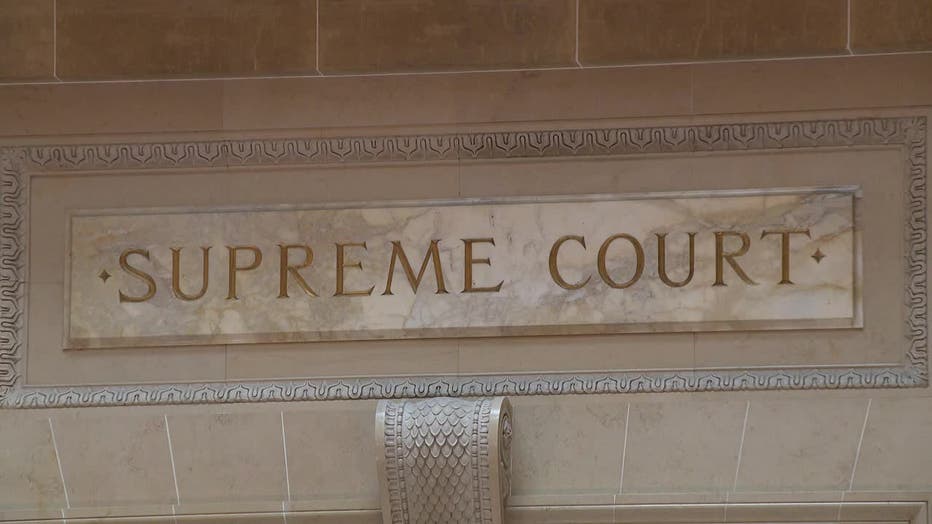Wisconsin Act 10; WI Supreme Court seat impact
MILWAUKEE - If you've enjoyed a break from the texts, mailers and campaign ads, both state parties expect they'll ramp up soon in the Wisconsin Supreme Court race.
A Dane County judge struck down on Monday, Dec. 2 parts of Act 10, a Wisconsin law that placed limits on government workers’ unions.
The judge already ruled in July that the law broke the Wisconsin Constitution. Months later, Judge Jacob Frost released his decision laying out what parts of Act 10 should be struck as unconstitutional.
SIGN UP TODAY: Get daily headlines, breaking news emails from FOX6 News
The state legislature appealed the ruling, which could make its way to the state Supreme Court. Justice Ann Walsh Bradley's retirement puts the court's balance of power in the hands of voters.

Wisconsin Supreme Court
Republicans said the Act 10 ruling sets up another expensive race, while Democrats say there are more issues in play here.
What is Act 10?
Act 10 put major limits on government workers' collective bargaining – they could negotiate pay raises up to the rate of inflation. The law exempted police and fire unions from that restriction. The new lawsuit says the distinction between groups violates the state constitution's equal protection clause.
Back in 2011, protesters packed the state capitol – fighting Act 10. At one point, Wisconsin Democratic senators fled the state to block a quorum needed to vote. Despite the calls to "kill the bill," then-Gov. Scott Walker in 2011 signed Act 10 into law, which has had a lasting impact on Wisconsin.

Protests against Act 10 fill the Wisconsin Capitol rotunda
The law also made cuts to state and local government workers' take-home pay. That is because it required them to pay more for their pensions and health care.
It caused protests for weeks.
His landmark legislation is still impacting politics some 5,000 days later.
Now, both state parties expect the campaigns will spend a lot of money on the state supreme court race.
So far, it's Waukesha County Judge Brad Schimel, a conservative, against Dane County judge Susan Crawford, a liberal.
"Are we protecting taxpayers in this state, or are we going to let outside interests come in and run the courts?" Brian Schimming, chairperson of the Republican Party of Wisconsin, asked.
Republicans who oppose this week's ruling see Act 10 as a key component of the race.

Wisconsin State Capitol
"I think this will end up, perhaps, being the most expensive supreme court race on record here in Wisconsin," Schimming said.
FREE DOWNLOAD: Get breaking news alerts in the FOX6 News app for iOS or Android
To which Democrats seem to agree.
"I think this is going to be another nationally watched campaign, and I think there are going to be a lot of resources at play here for sure," Democratic Party of Wisconsin Communications Director Joe Oslund said.

Wisconsin Supreme Court
Though the state party, which celebrates the ruling, points to other issues too, like abortion and voting rights.
"I think there's a ton of issues, and they're all super important. So, you know, this race is going to be bigger than one issue," Oslund said.
Both Schimel and Crawford were unavailable for interviews, but both candidates have chimed in on Act 10 in the past.
Schimel, who was once Walker's Attorney General, said he'd defend it if elected.
Crawford argued against the law in court back in 2011, seeking to overturn it.


